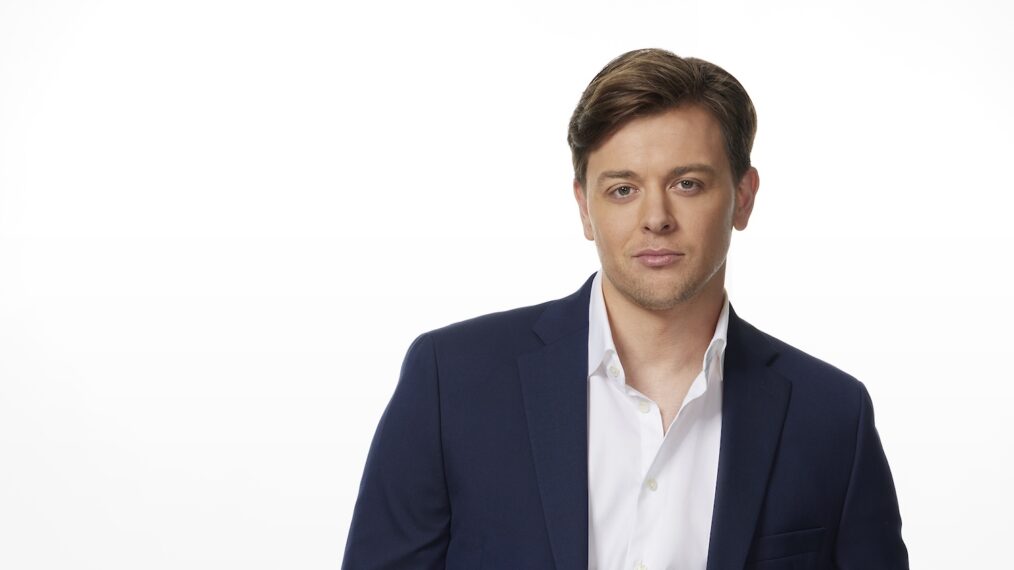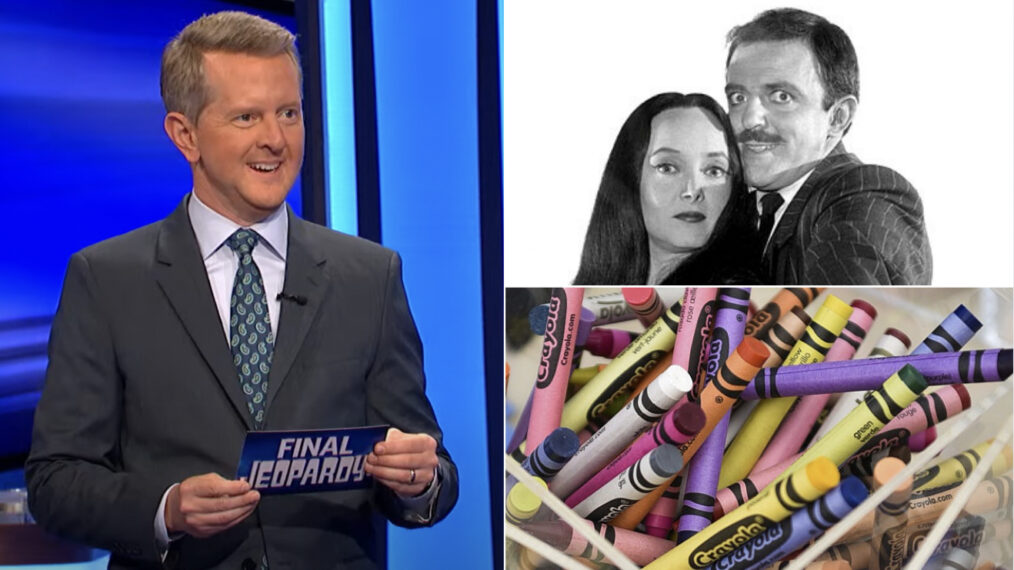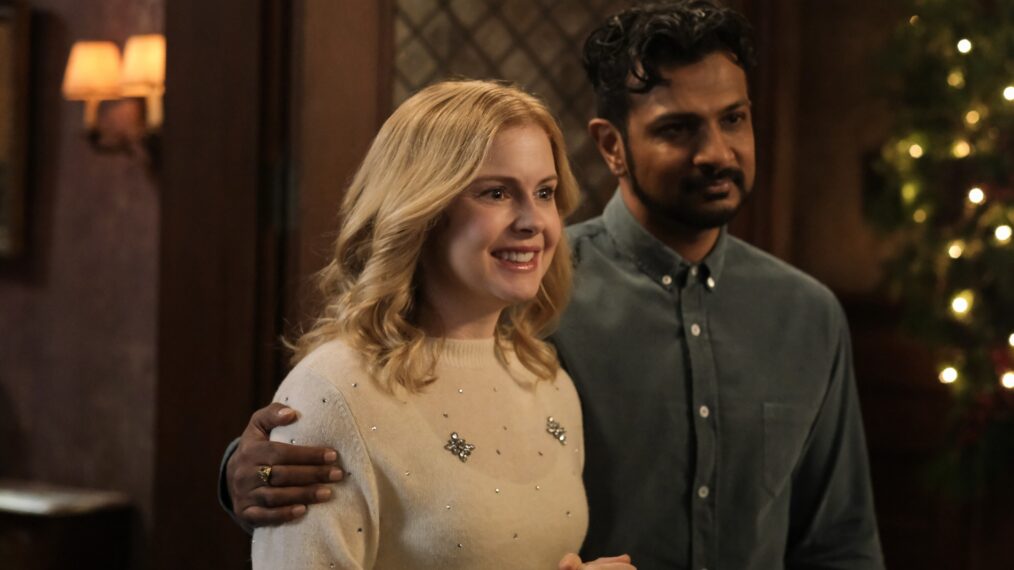For All Mankind Season 3 is setting up life on Mars.
All three teams are finally there safely, with the U.S. and Russia beating Helios but then jockeying for the latest small step for mankind.
It’s hard not to have concerns about what’s ahead. Can these three disparate groups work together for everyone’s benefit? We checked in with Co-Creators Matt Wolpert and Ben Nedivi for their thoughts.
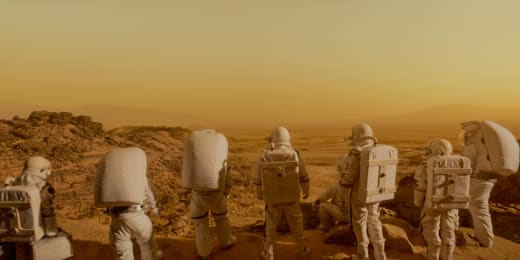
The characters have worked really closely with the Russians in the past, just because of the nature of the work. And then they have that handshake deal that kind of moved them back a couple of steps from aggression, but then we’ve got the Space Race.
We’ve got another big accomplishment ahead. We’ve got Mars, and now we’ve got them all on the same planet in the same housing.
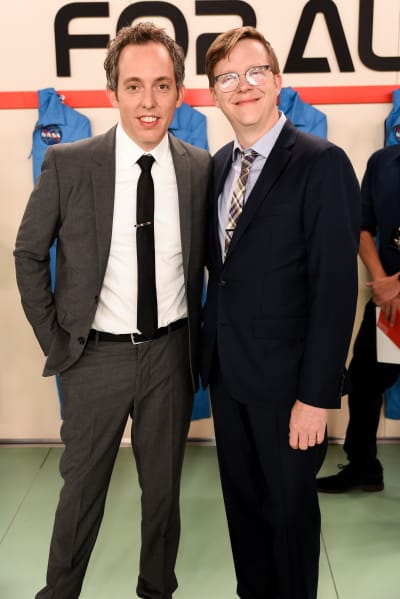
How does all that affect the season? And more importantly, why go that route to have everything so close again?
Ben Nedivi: Right. I think from the very beginning of the show, we were fascinated by the idea of not only the Space Race continuing but the Cold War continuing.
And the idea of the challenges, with all this conflict, with all this tension, from the higher ups and the politics, we believe a lot of it is really miscommunication and not talking person-to-person.
So, I think the nature of the show is built to the point like it did at the end of season two, where you want to see these two sides have to interact. And in the case of season three, forced to interact in many cases.
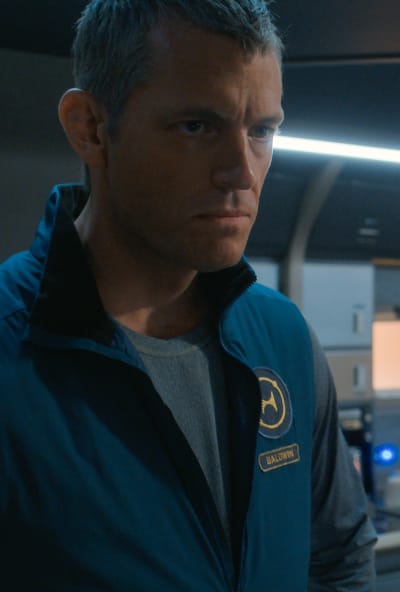
There’s a lot of mystery and suspicion and ill-intention, but at the end of the day, these are people; these are humans.
And in the case of the space program, these are astronauts and cosmonauts who do this job because they love space. They want to explore further. That’s what their goals are, and I think that’s where they can find common ground.
And I think that the real story this season is one of adventure and survival on Mars. We didn’t want to tell the same story of like the Americans versus the Russians. Again, we wanted to evolve it, and we felt the best way to do that was to put them in the same room. Let’s kind of combine and see.
The tensions would continue, but the goals are the same. I think that’s a nice flip on what we’ve done before.
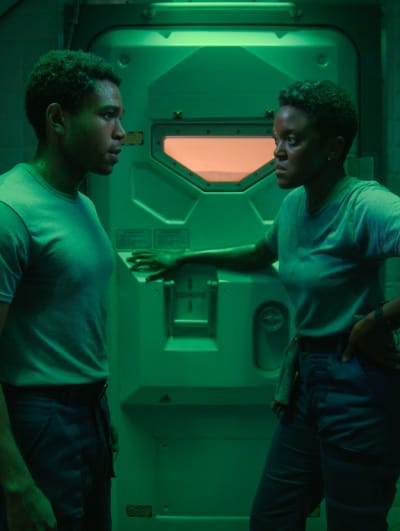
Margo is very close with Sergei, and we’ve got Kelly falling in love with somebody on Mars. How will those interpersonal relationships help the larger goal of working together in creating this place on Mars?
Matt Wolpert: Yeah, I think those personal relationships, those finding trust on the other side, can only help, but the question is can those personal relationships survive the more international implications of those, with Margo and Sergei in particular.
Those two characters we always saw as two scientists. They’re Patriots, but they’re not nationalists. What’s important to them is science and moving science forward and progress forward.
And if only their countries could figure out a way to work together, they would be able to just sort of be in the same room, and they’re kind of these kindred spirits, but their nation’s conflict gets in the way of them.
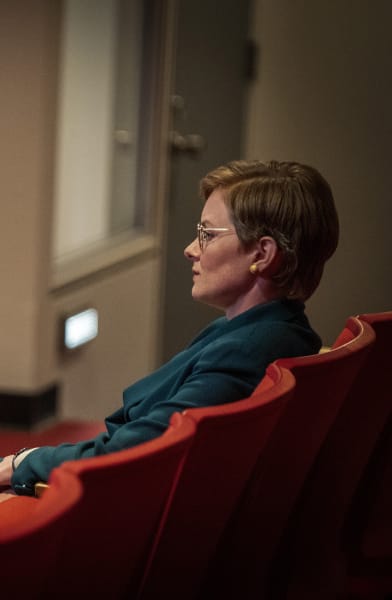
And I think with Kelly and Alexei, it’s similar, but because they’re on Mars because they’re so far away, there’s a little bit less of that interference between them, and they can kind of just exist as people together.
I also have a question about Helios. How did you want to bring them into the story? And especially with a visionary, such as Dev; he’s a different kind of guy. He sees business differently than every other entity involved.
And then Karen gets involved, and she has a different way of running a business than he does. All of that is super fascinating to me. Can you tell me the story behind it and what you hope to achieve with it?
Ben Nedivi: I think the natural evolution of the show was it started as a show about the U.S. and the USSR and the Space Race. And it felt natural to us that after this long, with the Space Race still going, there would be more entrance in this race.
There’d be more interest. And it feels like the opportunity to tell the story of a private company entering the race from Mars was something we just couldn’t not do. We really wanted to tell that story.

So, in Dev, we found an opportunity to expand the show, too, that as the show goes — because we’re jumping through time — we want to bring in new characters, and it felt like a really refreshing change for the show to bring in a character who is a visionary, who is ambitious and has an ambition that challenges the powers that be.
Ben Nedivi: So, it spices things up this year. Yeah, it’s still NASA; it’s still the USSR. And now you have someone who’s messing with them and their expectations and poaching from them. And it keeps them on their toes in a way that changes the show up in an interesting way.
And how do you think Dev could impact the way that NASA and the USSR work with their space programs? What will they take away from what they see with Dev?
Matt Wolpert: I think he challenges how people think about everything, which was happening in our real timeline with SpaceX and the other private companies.
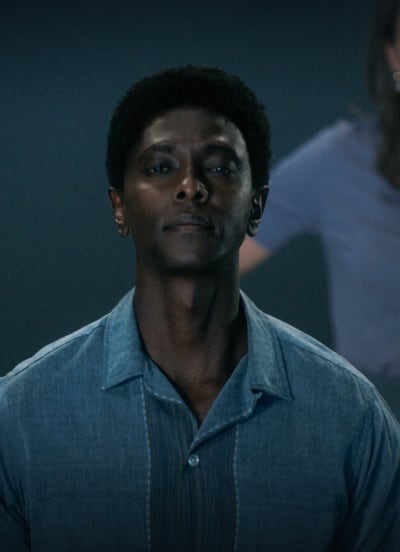
They were saying, “Well, we can do this in a different way that’s not as expensive, that’s more dynamic, that’s less driven by international primacy. And it’s about moving things further and changing dynamics.”
And that figure of an iconic billionaire who wants to change the world, you need somebody like that’s willing to ruffle feathers and break a few eggs along the way. Otherwise, that change will never happen.
And that makes him a complicated character, which for Ben and me, is the best kind of character.
New episodes of For All Mankind drop weekly on Fridays on Apple TV+.
Carissa Pavlica is the managing editor and a staff writer and critic for TV Fanatic. She’s a member of the Critic’s Choice Association, enjoys mentoring writers, conversing with cats, and passionately discussing the nuances of television and film with anyone who will listen. Follow her on Twitter and email her here at TV Fanatic.







































































